Indigenous supporters of My Legacy cannabis dispensary engaged city officials at the launch of Market at 70 King in downtown Oshawa and secured a meeting with Oshawa Mayor Dan Carter.
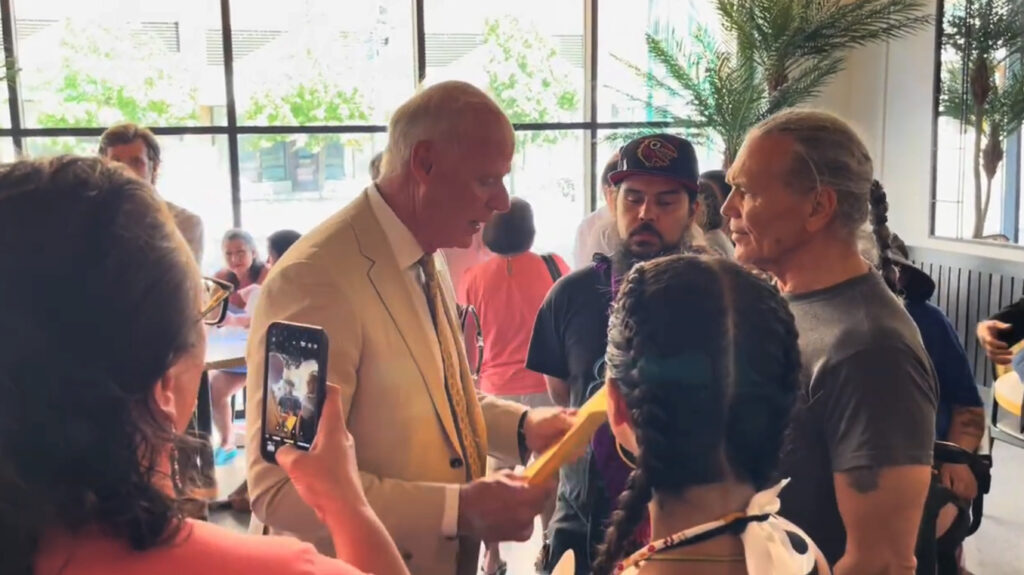
OSHAWA – Robert Fisher Tehonikonrathe is a Mohawk of the Tehanakarineh Bear Clan from Tyendinaga Mohawk Territory. In January of 2024, Tehonikonrathe joined a growing movement of Indigenous entrepreneurs operating sovereign cannabis dispensaries off-reserve, and opened the My Legacy cannabis trading post located at 29 King St. in Oshawa. In doing so, Tehonikonrathe was exercising his constitutionally protected Aboriginal and treaty rights, and challenging the racist Indian Act which – in violation of treaty agreements – displaced Indigenous peoples from their traditional territories, locked them on reserves, and barred them from participating in the Canadian economy.
Before opening his store, Tehonikonrathe went to the Oshawa City Hall on January 18th, 2024, and provided information to the municipality and local police about the exercise of his rights. Six days after he opened his store, on February 2nd, 2024, the Durham Regional Police raided Tehonikonrathe’s shop and announced that they seized $240,000 in trade goods from him. According to Tehonikonrathe, “I tried contacting the police and city hall, but they wouldn’t return my calls or even agree to discuss the issue of my rights.”
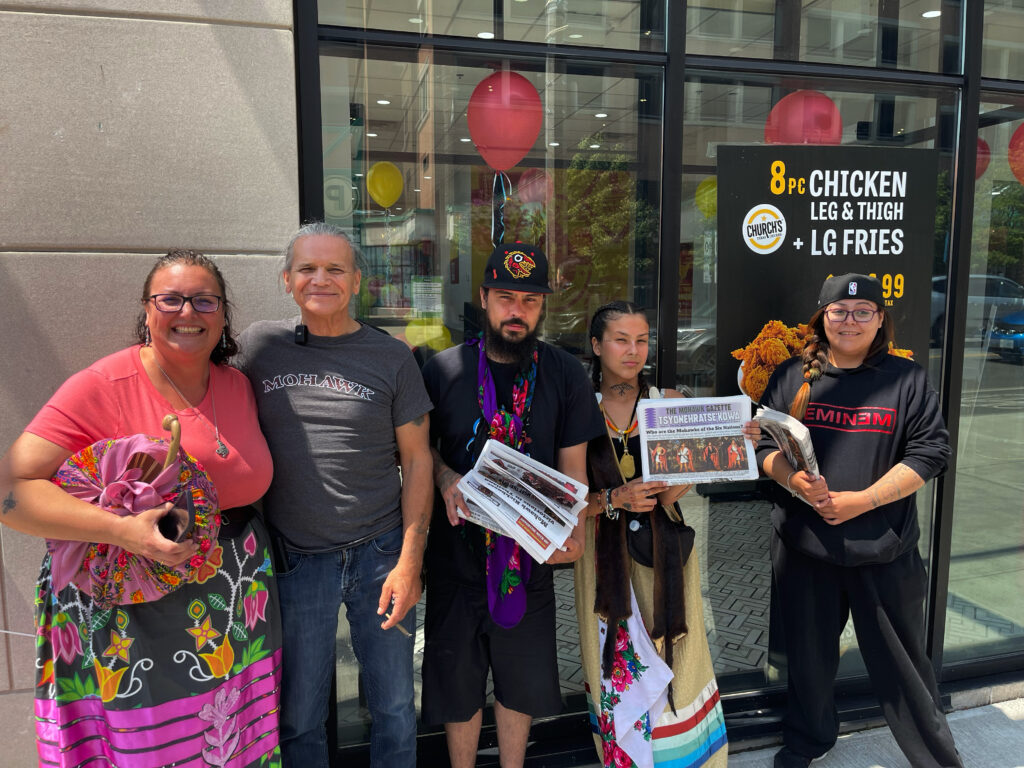
After exploring his legal options, Tehonikonrathe retained lawyers Gary Chayko and Gordon S. Campbell who were involved in the groundbreaking R. v. Montour case in Quebec’s Superior Court. That case saw Justice Bourque rule that the Covenant Chain Treaty Relationship between the Mohawks and the Crown remained intact, and offered a new test for the exercise of Aboriginal and Treaty rights in line with the United Nations Declaration on the Rights of Indigenous People.
Tehonikonrathe also sought the support of hereditary Crane Clan Chief and former National Chief Delbert Riley who negotiated the inclusion of constitutional protections for Aboriginal and treaty rights in the early 1980s as the President of the National Indian Brotherhood, the forerunner to the Assembly of First Nations. Chief Riley, 80 years young and full of vim and vigour, has brought his characteristic energy and drive to the support of the Indigenous cannabis economy. The Chief, who has been fighting Canadian racism since he was torn from his family and forced into residential school at the age of 6, has been a vital asset to Indigenous entrepreneurs pushing back against the violation of their rights.
As Chief Riley put it in a discussion with Tehonikonrathe, “Indigenous people have always had a right to an economy, in any place on Turtle Island. That’s the way it’s always been. We had our business people, we had our trading, we had our trade routes.” Speaking of the Canadian authorities, Chief Riley added, “They are just ignorant of the historical development of all this. That’s the problem we face today. We’ve got to bring them around to understand it.”
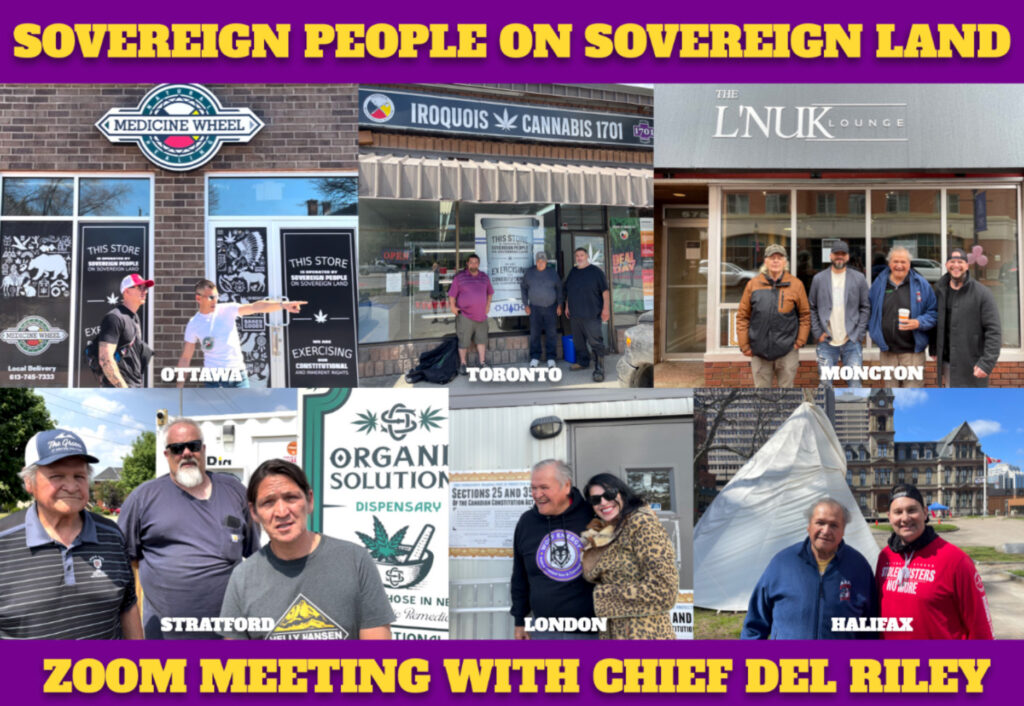
By organizing protests, holding speaking tours, supporting Indigenous cannabis associations, and sending letters and holding meetings with representatives of the Ontario Provincial Police and the Anishinabek Police Services, Chief Riley was successful in halting police raids on Anishinabek dispensaries on reserves around lake Huron and Manitoulin Island. After the Covid-19 lockdowns, Chief Riley became very active in supporting the members of the Micmac Rights Association, representing their members in court and winning a series of legal victories relating to cannabis and fishing rights. Chief Riley’s letters to New Brunswick Public Safety Minister Kris Austin resulted in New Brunswick adopting a position that it had no jurisdiction over the Indigenous cannabis industry on reserve. Chief Riley has also been active in supporting the opening of sovereign shops in London, Ottawa, Stratford, and many other locations.
Chief Riley and Tehonikonrathe deliver a message to City Hall
Unable to arrange meetings with Oshawa police or City Officials, Tehonikonrathe re-opened his business. On April 10th, 2024, Chief Riley wrote a 9 page letter to the Durham Regional Police and Oshawa Mayor Dan Carter and city councilors. Chief Riley’s letter detailed the fraudulent nature of the Johnson-Butler “purchase” made at a treaty council at the head of Bay of Quinté (near Trenton) on the 23rd of September 1787. In violation of the terms of the 1763 Royal Proclamation and contract law, the deed which was used by colonial authorities to unlawfully claim over one million acres of prime farmland – including the lands upon which Tehonikonrathe’s shop and the City of Oshawa currently sits – is blank and lacks the names of the Indigenous nations and signatories who allegedly agreed to it, the compensation for the sale, and even the actual boundaries of the surrendered land.
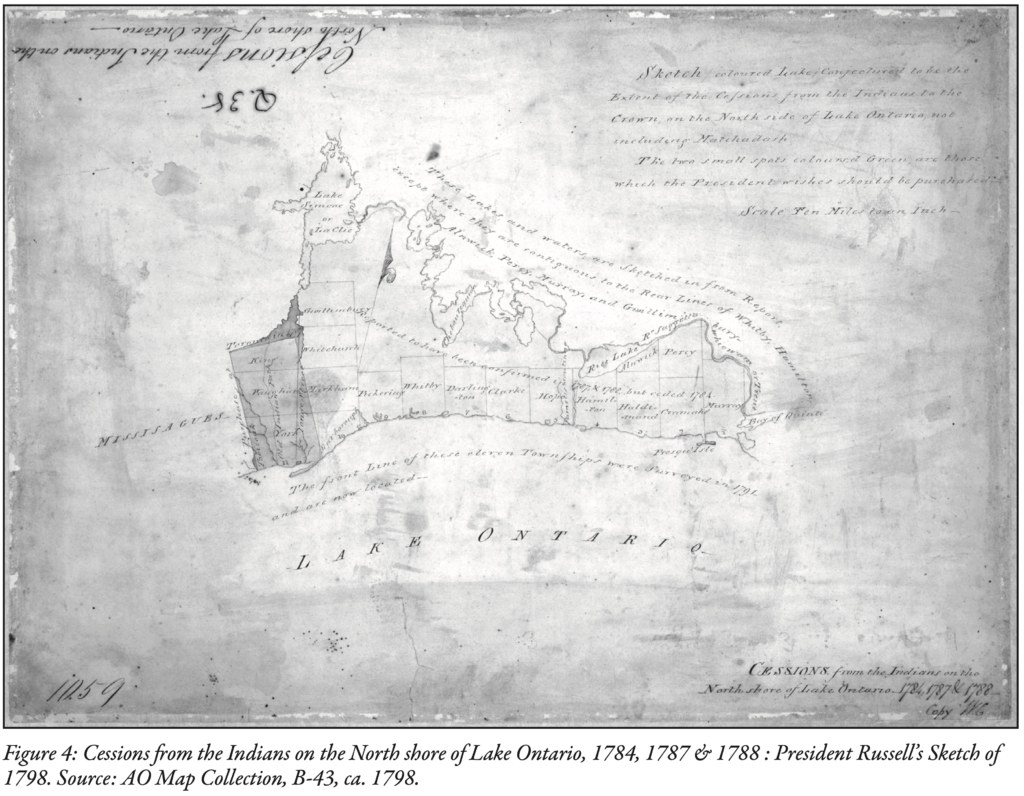
Canadian colonial authorities attempted to cover up the fraudulent nature of the Johnson-Butler purchase through the 1923 Williams Treaty, which dictated terms to local First Nations and was so flawed that recent litigation resulted in Canada and Ontario having to make a $1 billion plus cash payout to seven Anishinaabe First Nations and recognizing their hunting and fishing rights in the treaty area. However, as Chief Riley pointed out in his letter, both this settlement and the Williams Treaty itself “completely ignored the Mohawk interest in their traditional territory which was shared under the Sewatohkwat or Dish with One Spoon and Teyohate Kaswenta or Two Row Wampum agreements with the Anishinaabe.”
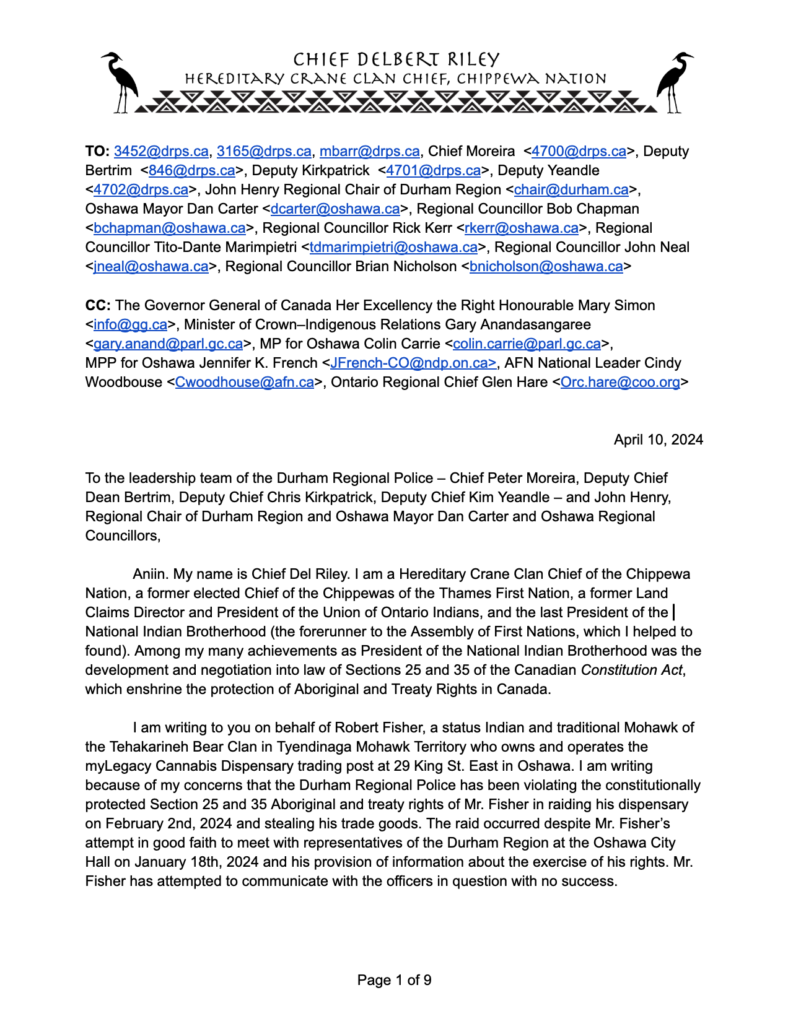
On July 11th, 2024, Durham Regional Police officers led by Sergeant Scot Green, entered Tehonikonrathe’s store without a warrant, and said that they were there to serve some papers on the staff member behind the counter. Once the staff member opened the doors, the officers swarmed in and stole another approximately $50,000 of Tehonikonrathe’s trade goods.
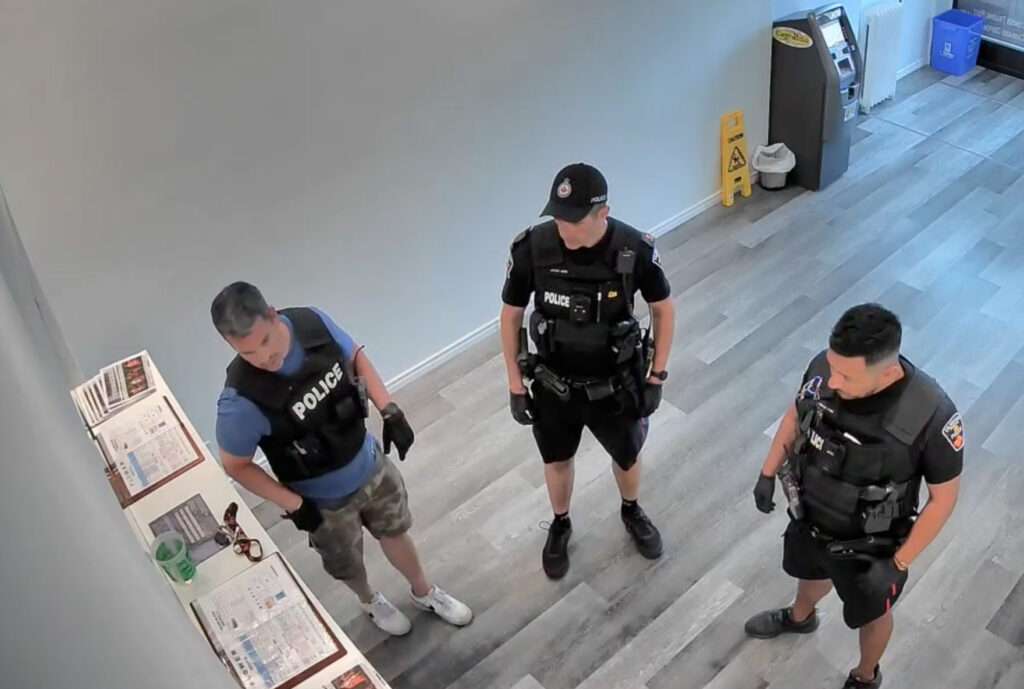
On July 19th, 2024 Chief Del Riley met with Tehonikonrathe and a group of his supporters to deliver another letter calling on City Officials and the Durham Regional Police to meet to discuss the treaty rights involved in the matter.
Engagement with Mayor Dan Carter and MPP Jennifer French
After delivering the letter at City Hall without incident, the group headed over to the launch of the Market at 70 King St. where a new food court was being opened in the lobby of the former Genosha Hotel, Oshawa’s first luxury Hotel. As Chief Riley and Tehonikonrathe ate lunch they encountered Frank Horn, a Kahnawake Mohawk involved with the project. Horn invited Chief Riley to say a few words to open the event, where Oshawa Mayor Dan Carter and MPP Jennifer French were also invited guest speakers.
In his remarks, Chief Riley discussed the phenomenon of sovereign Indigenous stores opening up in Canadian cities, stating that, “Nobody should be afraid, because our people are now getting into the economy of the country. We’re going to be opening businesses in various cities, and I’ve helped open maybe 15 and 20 businesses in towns.”
Chief Riley added, “We just hope this whole transition will be smooth, but we’ve got bumps along the road. We’ve opened a shop. People got charged, went to court, they dismissed everything. People do need to know and understand what Aboriginal treaty rights are and what they mean. There’s 500 [First Nations] shops open now… and that’s only a beginning, but hopefully we’ll move into other things, because, as I said, it is so important that we become part of the economy of the country, so that the issues of tension between each other will disappear then.”
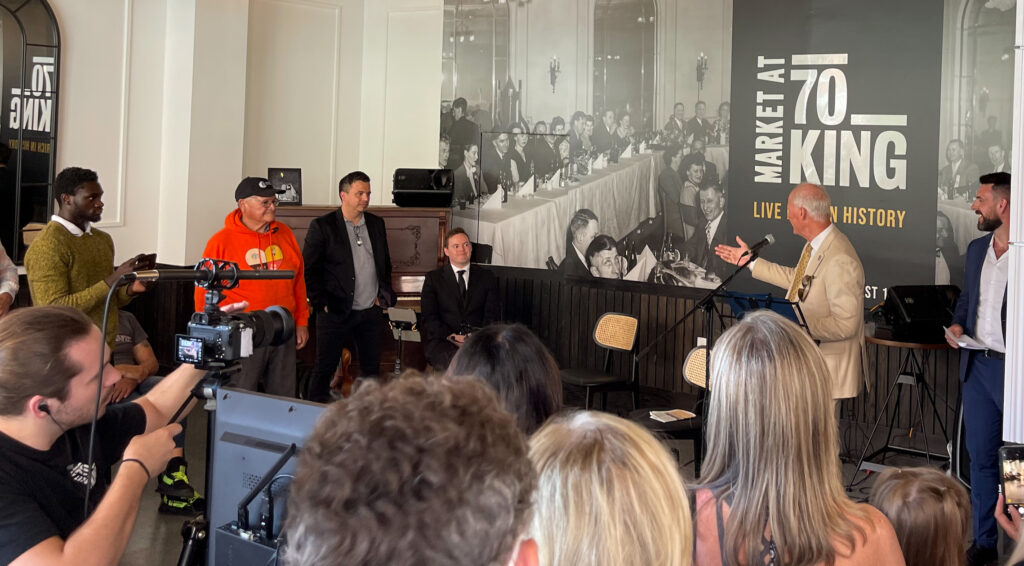
After Chief Riley’s speech, Mayor Dan Carter spoke and offered his congratulations to the Market at 70 King and supported the Indigenous involvement in the project. When he was done, Tehonikonrathe took the floor. Standing across from the Mayor, Tehonikonrathe stated, “We’re the First Nations, and we live in this community, and we’ve been trying to get an audience with you on three occasions now. We have sent nine page documents to your office asking for an audience, and instead, you send police officers to raid us and shut us down. It continues to happen here, and it’s in violation of Section 25 and Section 35 of the Canadian Constitution. Why do you let that continue and then speak like you speak [in support of Indigenous rights] at a microphone?”
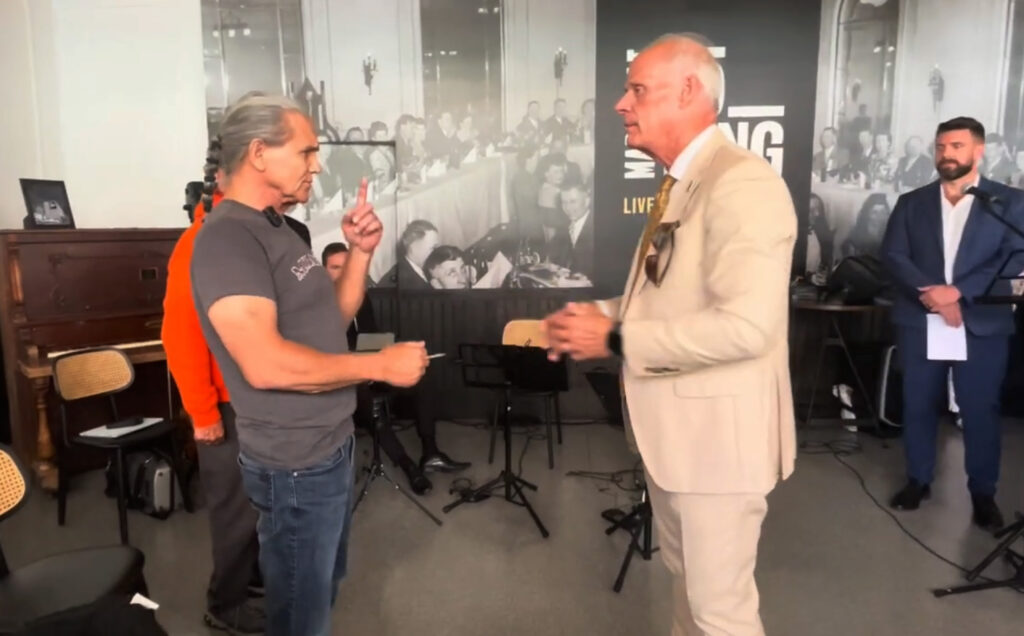
The Mayor responded by stating that he was unaware of any police raids and stated that he was not aware of receiving any communication on the matter. He added, “If you would like to meet, and speak about any issues that the city has, I’d be more than willing, not only right at this moment, but at any time of your convenience.” Mayor Carted also added, “I’m not an expert in the law in regards to the treaty aspect. So it would be unfair for me to answer, but I would say that there are laws that have been traditionally there for many years and generations. I don’t know if anybody has taken these into consideration, but what I look forward to is reading this and finding out what your experience is, and then figuring out who needs to be at the table to have this conversation… I really appreciate it. Thank you for bringing it to my attention.”
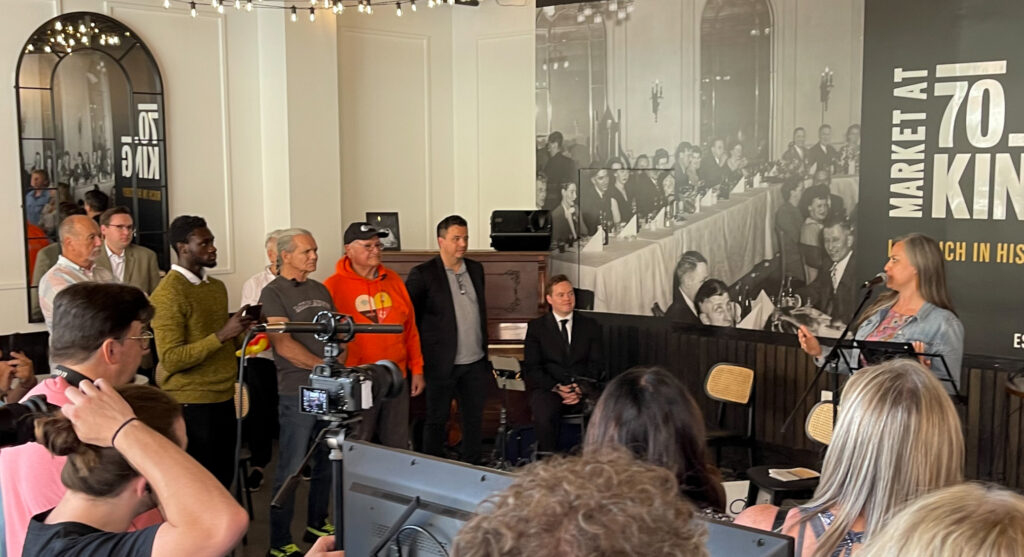
After the Mayor’s gracious response, further productive conversations were had between the Indigenous delegation and local dignitaries. Oshawa MPP Jennifer French spoke with both Tehonikonrathe and Chief Riley and received a copy of Chief Riley’s book, as did the Mayor. Arrangements were made for a meeting with local officials, and Tehonikonrathe prepared to re-open his trading post, the appropriately named, My Legacy cannabis dispensary at 29 King St. in Oshawa.
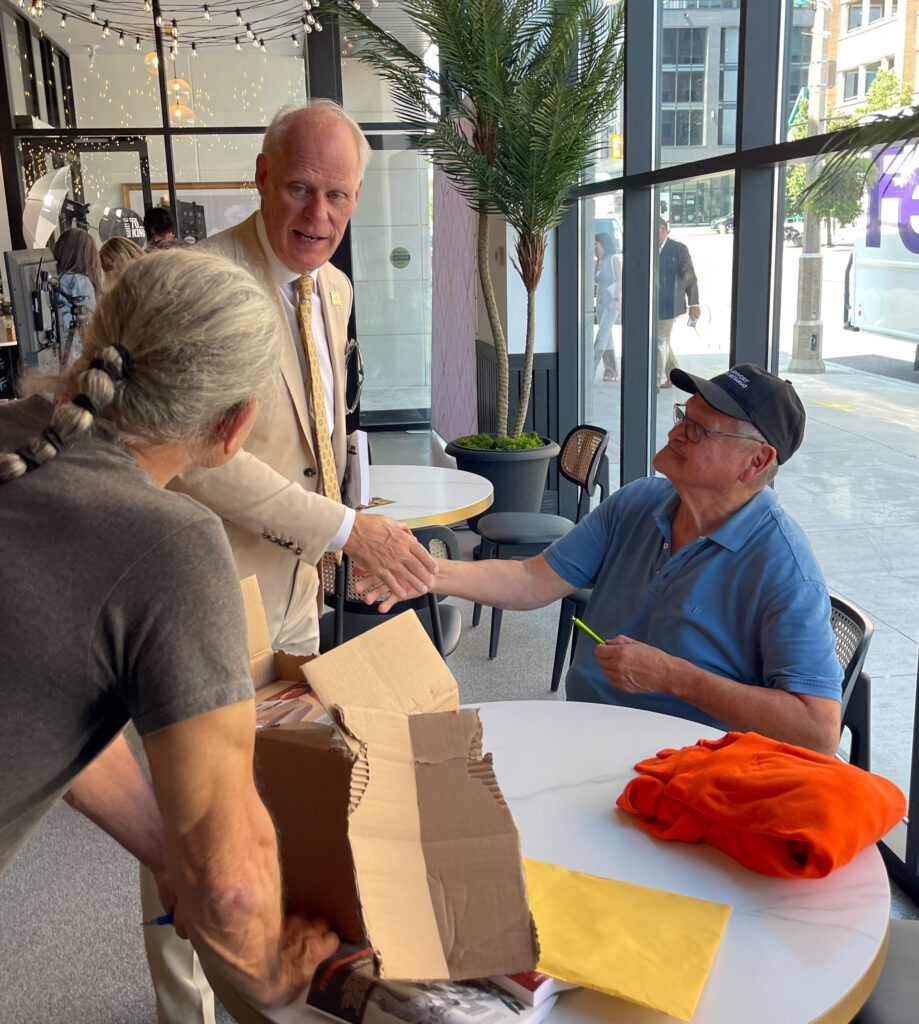
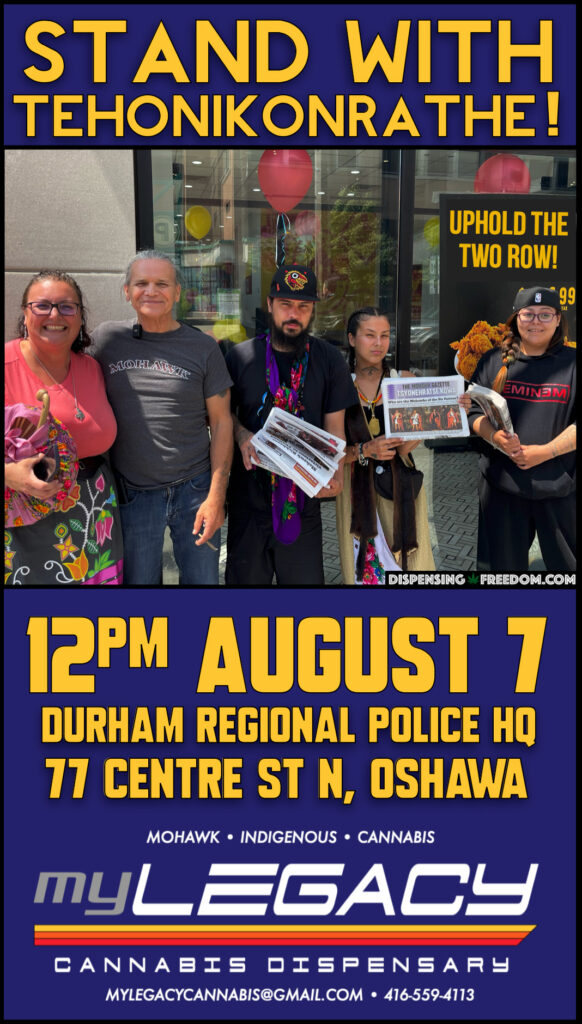
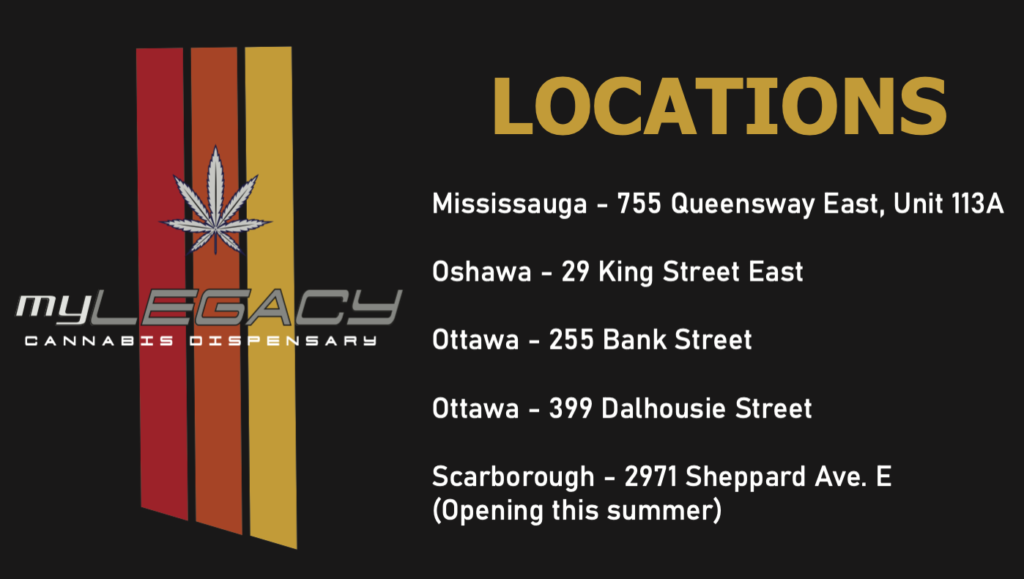

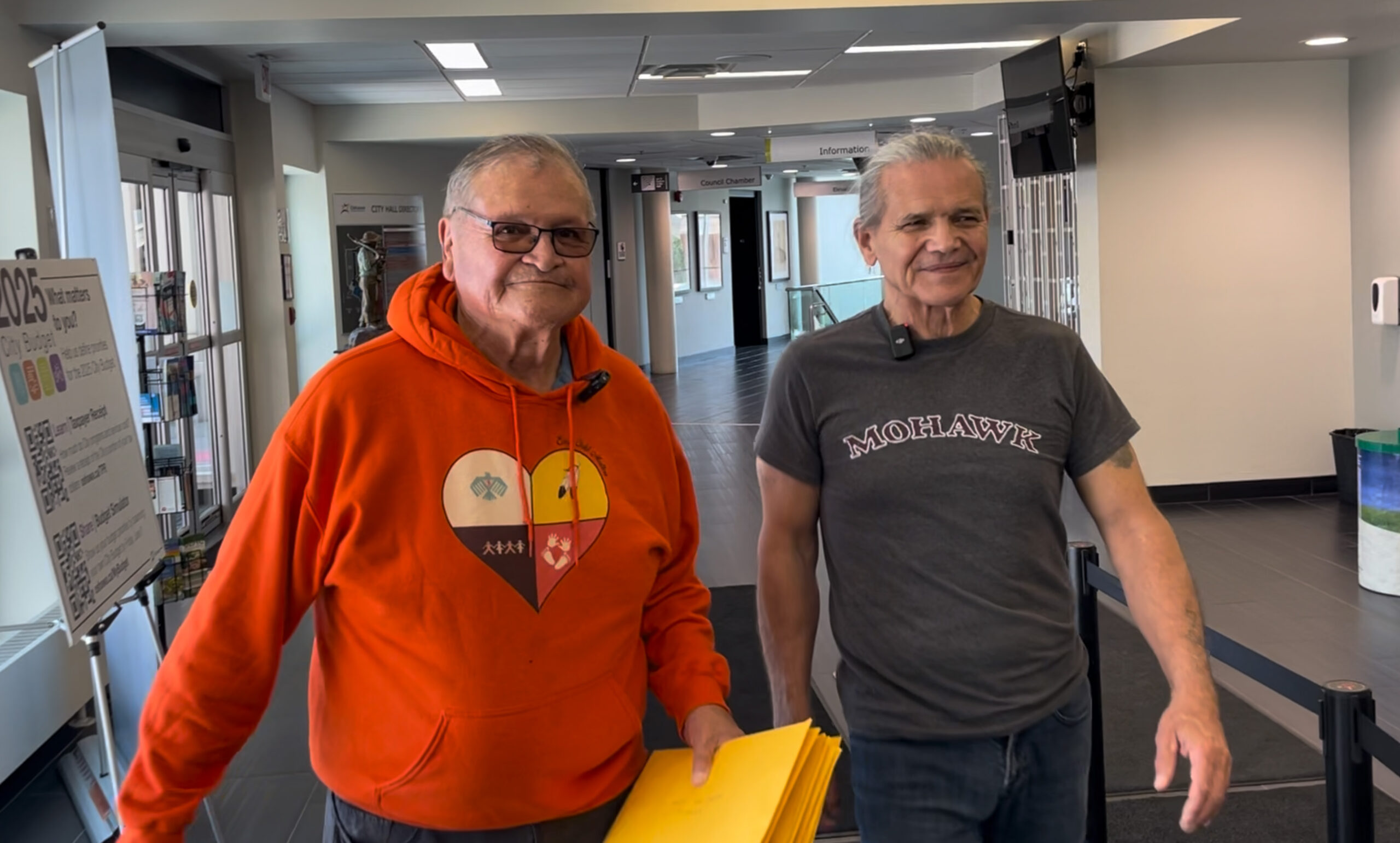
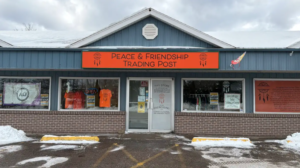


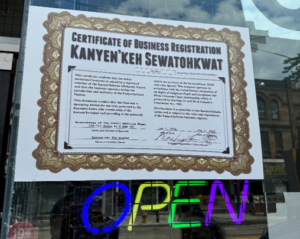
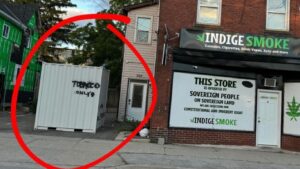



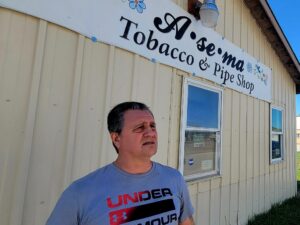
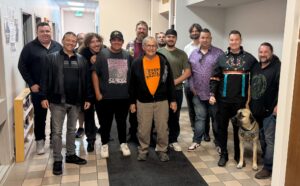


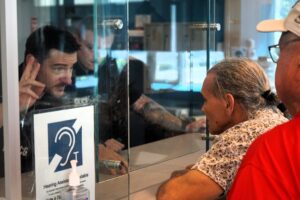
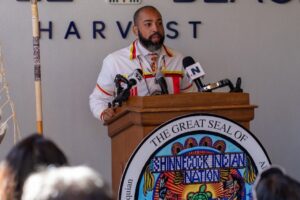

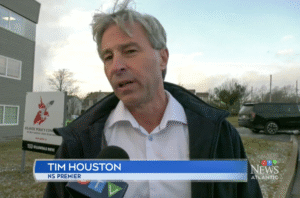
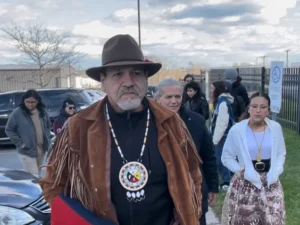




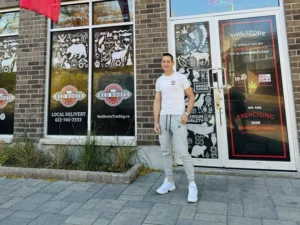
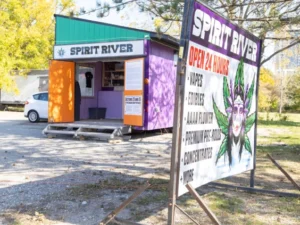
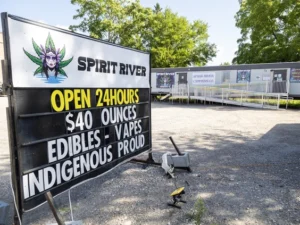

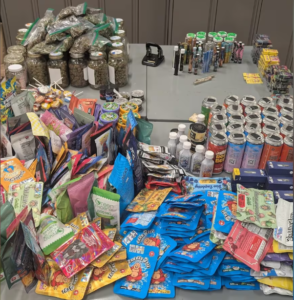
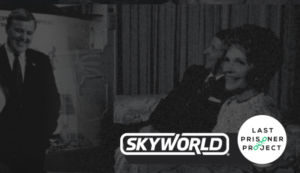


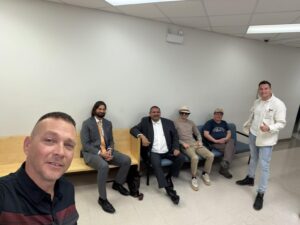
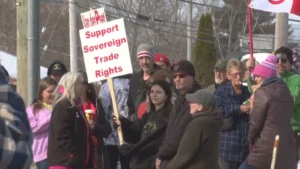

Be First to Comment